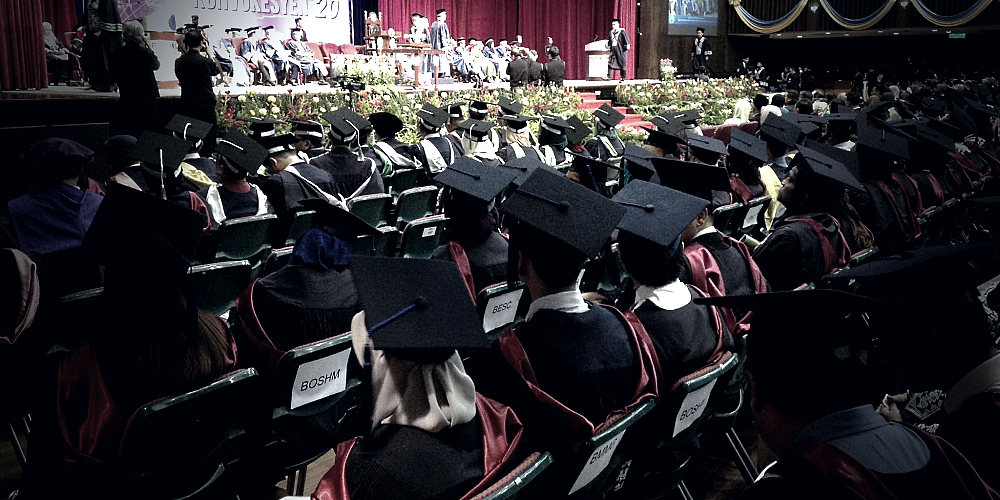The government must through education help deliver the low-income groups from the curse of poverty, at the same time nurturing the skilled workers needed for the country’s economic and industrial transformation.
Minister of Economy Rafizi Ramli said some Malaysians have been unable to get good income because they are hired in non-professional sectors due to poor academic qualifications.
Today, poverty is spread across the whole ethnic spectrum and is not exclusive to the Malay community; and the reality is very likely a result of poor qualifications and non-professional jobs, which in statistics is completely corresponding to “low income”.
As such, poverty is not associated with any particular ethnic community because in every community there are people who are rich as well as poor.
Consequently, comparing incomes of people from different ethnic groups based solely on intra-community averages gives the distorted perception that “a specific community is poorer than the other communities”.
Quoting the official statistics released by the Statistics Department in end-July, Rafizi said Chinese Malaysian households earned an average of RM10,656 per month last year, followed by the Indians at RM8,950 and the Malays at RM7,599. This puts the ratio of Chinese to bumi household income at 1:0.71.
These numbers show that indeed there is an obvious income disparity among the different races in the country, but does that therefore mean that Chinese households are making a lot more than the others in general?
Not necessarily. As such, the Statistics Department should perhaps include an additional parameter on the correlation between the people’s incomes and their qualifications and professions to verify whether low income is related to a person’s academic qualification and profession.
If Rafizi’s explanation holds, we should admit that highly qualified individuals with niche professional skills will have an edge in “remuneration negotiations” with their potential employers in the job market.
According to the minister, only 30% of bumiputras have university qualifications, while as many as 70% opt to venture into the career market right after high school.
How much of life experience and skill-set does a young man or woman still under the age of 20 will have? Not much! So, their options are naturally limited.
All they can do is to be a food deliverer or start from the lowest entry-level jobs in a private company, or be an apprentice.
Jobs are never scarce in the Malaysian job market, but without a professional skill, a well-paying job is out of bounds, unless you are one of the very few successful social media influencers or have a strong family financial background.
By comparison, the university attendance rate among Chinese Malaysians is very much higher.
Take the independent Chinese high schools for instance, nearly 80% of high school graduates choose to further their studies.

With four additional years of university education comes a valued professional skill and hence significantly better pay.
Although a good education may not always guarantee a thick salary, at least you have many more options in the job market!
Rafizi said the government plans to set up a mechanism to put university graduates on continued vocational training, which we think is a great idea, as this will help address the issue of university graduates lacking the employable skills.
The Unity Government is now actively wooing foreign investors but on the downside, we painfully have a severe shortage of skilled professionals.
The following proposals from us could perhaps help resolve this perennial problem.
First and foremost, our tertiary or vocational education must be aligned to the prevailing manpower needs of the market as well as the country’s future development.
Courses offered and curriculum taught at the institutions of higher learning must be fine-tuned as far as possible in order to churn out graduates who will meet the demands of the industry and the country’s development.
Minister of Science, Technology and Innovation Chang Lih Kang insists that the rocket launch site project he proposed will catalyze the country’s industrial transformation and boost capital- and technology-intensive sectors, while technopreneurs and their employees are set to benefit from the technology transfer from foreign investors through such industrial transformation.
Such an idea is indeed excellent, but we still need to put in the necessary effort so that the project will not be reduced to a “white elephant” eventually.
Secondly, the existing race quota for university admission must be abolished.
We only have a small population of 34 million, and with a limited pool of human resources, we should not set race quota any more.
In 21st century Malaysia, we cannot afford to make ethnicity a criterion in determining a student’s admission to a university. Low talent output will substantially restrict our country’s development and growth.
Thirdly, Malay parents must be encouraged to put more emphasis on their children’s education so that the professional skills they attain will put them in an advantageous position in the job market, thus liberating their families from the shackles of poverty.
The creation of low-income communities in the country has nothing to do with any religion or race, but the lack of employable skills.
Where this is concerned, the government must strive to rectify the situation and through education help deliver the low-income groups from the curse of poverty, at the same time nurturing the skilled workers needed for the country’s economic and industrial transformation.
ADVERTISEMENT
ADVERTISEMENT








































